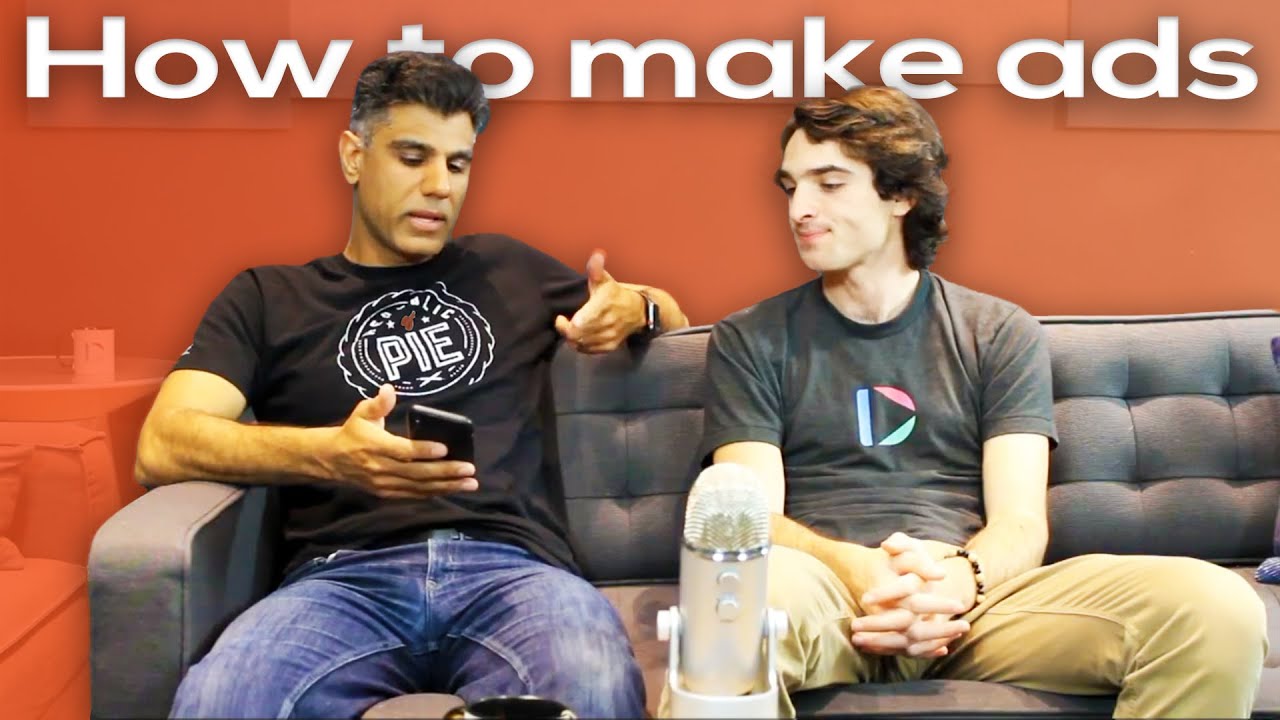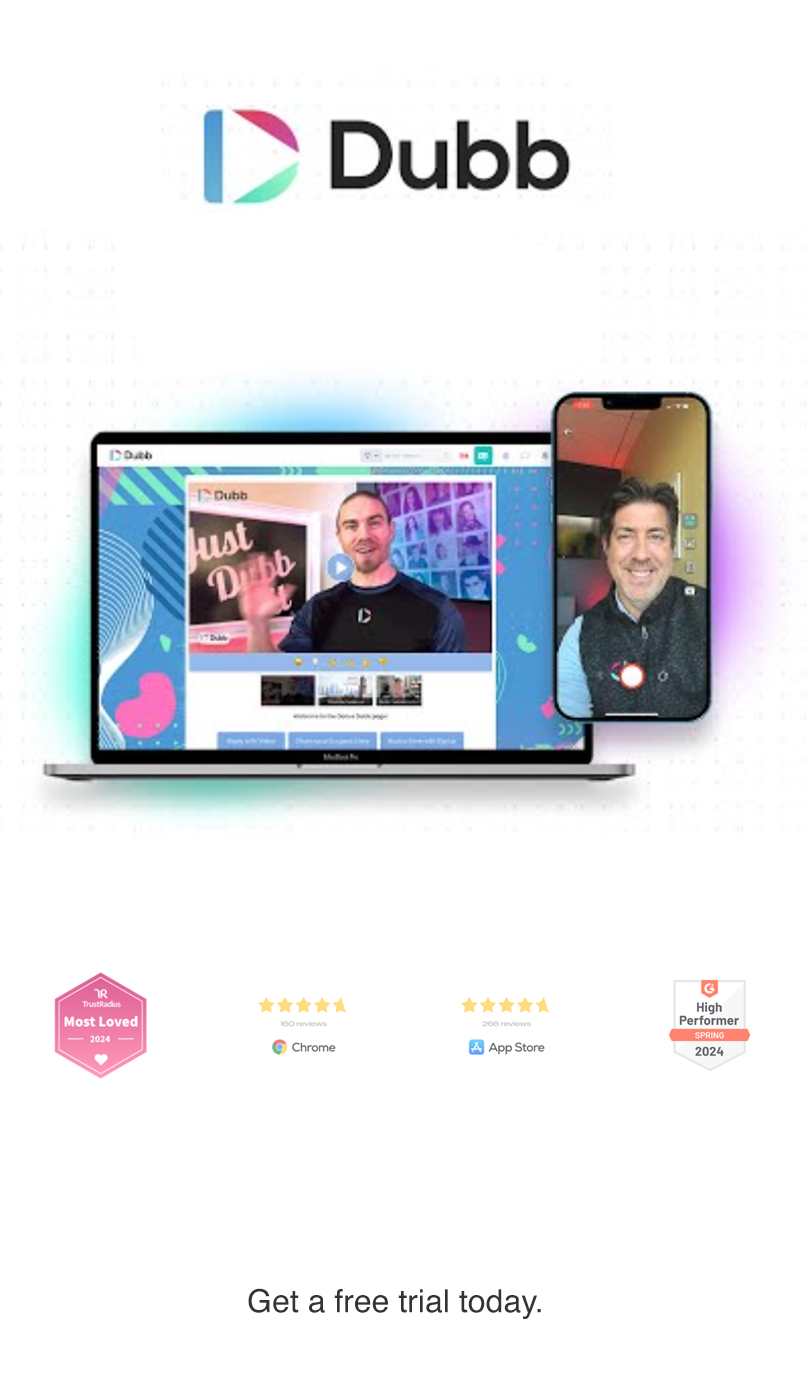Here’s the transcript:
Is privacy completely gone and the market is,
hello, do we care?
How do marketers leverage awareness from consumers about
the fact that their privacy is almost gone? There’s almost a backlash to
that. Like DuckDuck, go competitor to Google,
except they just don’t track you. I’ve heard of this, but I’ve never used it.
Shout out to Gabriel Weinberg, founder of Dock Go.
The whole marketing strategy basically saying, hey, listen, we’re not slurping
up your data. We’re not selling your data to advertisers. It’s actually worked out pretty
well for them. A multibillion dollar Internet privacy company.
And that’s all leveraging the awareness that people have
about privacy. You’ll notice advertisers go out of their way to tell
you that they’re tracking information about. So say you have been retargeted
for this content because you visited X, Y and Z first name,
your last name, the city that you live in, we’re going to put that in
the ad itself. Yeah, I’ve seen that where there’s like, hey, people in Los Angeles
where some people are like, oh, well, that makes me feel uncomfortable because how do
you even know my email or my information? But then on the flip side,
maybe it’s like, Oh, well, this was personalized for me. Click. You can
target based on the device you have operating system. I mean,
why don’t companies say, hey, that phone you’re holding is five years old. You should
get a new phone. Click here to buy one. There is that sort of creepy
creep factor when you target two. Specifically,
there’s a trust that’s lost there for marketing and using
this incredibly rich data set. Facebook and Google,
they give you these incredibly detailed targeting options.
And now we have to be mindful whether we’re creeping people out. I mean,
count how many cameras are in this room right now.
56789. Hey, Alyssa, join the conversation.
Hey, siri, tell us a joke. Why did the chicken go to the seats to
get to the other side?
Outside Go is a great example of using privacy and marketing to
their benefit. The biggest takeaway is just to be mindful about how
you use the data and how you’re targeting, because people are just so
much more aware about their privacy. I’m recording my YouTube
show When You Call. What kind of YouTube show? It’s a YouTube show that
I do for, like, sales and marketing. I actually have several
different roles. I’m working to specialize just in network professional.
Surprised that calling people even works nowadays. I get so
many of these calls, unless they’re in my contacts, I don’t answer,
because every time either a robocaller or someone trying to sell
me something, consumers are actually speaking up against advertisers.
These apps now for robocallers, where not only can
you block the robocaller, but you can actually play a trick
on them. And you can prank them, you can punk them back, robo sequence on
them, effectively waste their time and money for retaliation.
And people are getting a kick out of. What do you think about the narrative
in culture right now that’s very, like, anti technology and antisocial
media. Every dinner table conversation about social media I’ve had
in the last two years always has, like, a negative spin on it. Oh,
what’s happening? Everyone’s being pulled into our phones. Trust issues
there’s, privacy issues there’s. The whole lonely factors
are just saying that we’re destroying ourselves, losing our whole connection to
society and to other humans just by being locked into our phones.
And to a certain extent, there’s some truth to that right now. There is.
It’s all about balance, right? Isn’t it? Yeah,
totally. It is about balance. There’s a lot of truth to it. My kind of
perspective is I see it as tidal wave. Like, social media is this tidal wave,
but the tidal wave is coming no matter what. So it’s like, how do
you work with that? The answers have not been figured out yet by any means.
These tools are extremely powerful and they can be used for evil,
but they have the same potential to be used for good as well. I don’t
know if Android has this, but since Apple came up with the whole what’s it
called? Yeah, screen time, how much less do we use our
phones now that we know how much we’re using them? I mean, I get the
little ping every Sunday. Time well spent movement. We’ve built this technology.
It’s consuming our lives. Let’s actually
make sure this is time well spent and it’s not wasted time.
Right. So I’m at like three and a half hours per day. Wow. I got
3 hours, 57 minutes per day. My top was messages
Instagram. Inbox by Google, which is being shut down.
I’m so sad. Inbox by Google, everyone. Let’s pour one
out for Inbox by Google. If you use Inbox by Google, just comment down
below or something. Anyways, you’ve been watching The Daily. Be sure to subscribe,
like, comment all the things that the YouTubers say.
Every time I have
a choice in my privacy, you just get to set up the camera
and just intrude in my space. Yeah, I mean,
there’s cameras all around me. Anyway, to jump into this segment on privacy,
and what better way to do that than impinge on
his privacy?
That was us making a thumbnail. Who invented that?
The word thumbnail is a reference to the human thumbnail.


